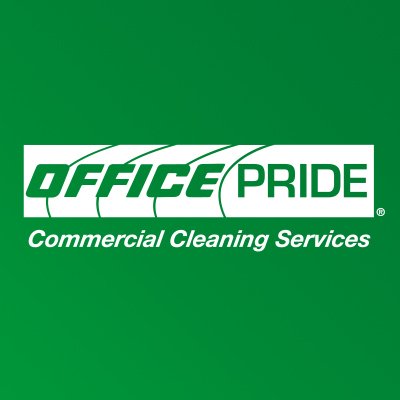
How would you respond if your deliberately behind-the-scenes customer experience efforts were suddenly thrust to the foreground?
That’s the challenge Office Pride Commercial Cleaning Services’ CEO Todd Hopkins faced when COVID changed the way we all think about cleaning.
I met Todd after customer service guru Shep Hyken recommended him in response to my call for customer-focused leaders I should interview. It was an awesome recommendation!
In addition to founding Office Pride, a faith-based cleaning service, Todd has also authored/co-authored four best-selling faith-based books: The Carrot Chaser, The Janitor, Five Wisdoms for Entrepreneur Survival, and most recently, The Stress Less Business Owner.
I interviewed Todd to learn how he’s been able to continually grow his business and to find out what impact COVID has had on his company. The following excerpts from the interview offer great tips for anyone looking for growth through providing an exceptional employee and customer experience.
We’re a commercial cleaning franchise in our twenty-eighth year, and we have 130 franchises in 25 states. Our franchisees are out there right now on the front line in terms of providing disinfecting services. Janitorial service has always been our thing. But now, of course, everything has changed.
Historically, customers said, ‘I don’t even think about cleaning. You guys come in and just do your job. And if I don’t have to think about you, that means you’re doing your job.’ That is something we’ve heard for years.
Now they want us to be seen. They want us to go from being the most invisible people to the most visible. They’re calling and saying, ‘Can you send over somebody in uniform just to go around cleaning things?’ Because their employees want to see that the facilities are being cleaned and disinfected on a regular basis.
That dynamic has changed our industry and it’s been interesting. As you know, a big part of customer experience is that customers get to define what they really want. Right now, they want the cleaning people to be seen because it gives their people confidence.
I did a college research paper on how to franchise in the janitorial industry. And then I turned it into a real business. I started out cleaning buildings myself, so that I would know what customers like and how they like to be treated. I know what it takes to keep a customer.
Three years in, we began franchising and I communicated that passion to the franchisees so everybody in the organization understands that if we don’t have customers, we don’t have a business, and they don’t have jobs.
I like the idea of helping people start businesses. I like coaching them. So now we have 24 people on our corporate staff. We don’t sell anything; we teach independently owned and operated franchisees how to own and grow their commercial cleaning business.
We’re a faith-based company and our mission is ‘honor God by positively impacting people and workplaces.’
The bottom line is that customers want professionalism and consistency. They don’t always want the lowest price. And if somebody is out there promising perfection, then that’s viewed by the customer as a promise that can’t be kept and it causes them to lose trust.
We tell customers right up front, ‘We’re not perfect, but we are sincere. If we ever make a mistake, we’ll fix it.’ And customers appreciate that.
When we do a sales proposal, they usually will tell us, ‘You guys aren’t the lowest price, but you’re definitely the most professional.’
The key is to maintain that professionalism as we deliver the service, along with responsiveness and good communication. You don’t want to leave a customer wondering.
So when a customer calls, they want somebody to answer that phone. Our franchisees are good about that. And that’s what keeps business.
We definitely want to be at the top when it comes to professionalism and consistency. We know that’s what customers value.
Professionalism starts with looking good and clean. If you’re wearing a dirty uniform, that’s a problem. You need to be clean and you need to look the part. The janitorial closet should be nice, neat, and organized. That should be a sample of what the building looks like.
The other thing is being there on time. If we have a designated time to be there, we’re there every night when we say we’re going to be and we do what we say we’re going to do.
And we call customers back when they call us. That’s professionalism.
We have eight core values. The first one is honor God, and the next seven are all about customer service.
It’s easy. I was taught by one of my first customers many years ago – I’ll never forget it. I sent her a little survey and asked if she would mind filling it out. She said, ‘I hate filling out surveys. You should tell me how the building looks. I hired you to clean the building.’
And that has been my philosophy ever since.
We start with customer retention. The way we measure happiness is whether we are keeping the customers that we have. Retention, not growth. You could grow a lot and lose a lot and have unhappy customers. You can be a sales machine and have unhappy customers.
I prefer to keep the customers we have.
We have some franchisees who are kind of happy where they are. They’re really not growing, but they never lose anybody. So they’re content, happy, complacent.
I would love to see them be more interested in growing, but you know what? If they’re happy, we’ve done our job. We’ve equipped them and enabled them to build a business and achieve their dreams. So that’s good. Others are in growth mode.
I listen to a lot of books and podcasts, and I recently listened to Mastering the Rockefeller Habits by Verne Harnish.
He mentioned that one of the next big KPIs is intel: How much time are you spending gathering intel from your customers? Talking to them? How many hours a week do you actually talk to your customer, finding out what’s valuable to them?
For most people, it’s probably less than hour, if any. I frequently call a franchisee just to say, ‘Hey, how are you doing? And what are you experiencing out there?’
See, if I know what they’re experiencing, I can put on my strategic thinking hat and use the muscle of this organization to help make their lives better.
And that’s part of being a good franchisor. I believe in gathering Intel from the customers.

